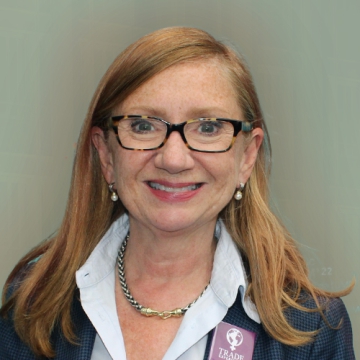Five best wishes for WTO members in 2022
For my first blog of the year, I want to wish WTO members a good and fruitful New Year. This means, in my view, building on international trade cooperation to achieve results in a set of pressing issues, for the benefit of many around the world. My wishes are not a pie in the sky; they fall in the 20/80 category: 20 percent aspirational and 80 percent pragmatic and achievable. Here’s hoping to make the best of 2022!
First, 2022 should be the year where WTO members deliver a trade and health response to the pandemic, including on intellectual property issues. Trade in medical products proved to be a lifeline for people across the world in 2021, but more is needed. A strong framework that would facilitate trade in vaccines and critical medical gear and the inputs necessary for their production would go a long way in saving lives, supporting a more widespread recovery and helping prepare for the future with increased and diversified manufacturing capacity in all regions. This agreement is not only feasible, it's within reach early in the year.
Second, with the adoption of several ministerial statements in December 2021, governments put the WTO on route to strengthen the role of trade rules in effectively combating climate change and supporting environmental objectives, including by exploring work in areas like trade in environmental goods and services, sustainable plastics trade, and fossil fuel subsidies, among others. Work in 2022 could set the stage for launching plurilateral negotiations in some of these areas. Moreover, and as early as possible in the New Year, WTO members should conclude the negotiation of a long overdue agreement to cut harmful fisheries subsidies. Doing so would send a strong signal of their commitment to a green trade agenda — and of their ability to negotiate multilaterally.
Third, building on a very productive year in 2021, the more than the two thirds of the WTO membership participating in the negotiations on investment facilitation for development have set the target of concluding a deal in 2022 with the goal of helping countries improve their business climate and make it easier for investors to invest, manage their business and expand operations. Success would help leverage the power of foreign investment for a strong and sustainable recovery. In a similar vein, advancing significant progress in the plurilateral negotiations on e-commerce could help small and medium businesses in all countries from Senegal to Ecuador to Vietnam and beyond to reap the benefits of participating in international trade, underpinned by one single set of rules and with reduced trade costs.
Fourth, concerns about growing levels of government support distorting international markets, coupled with limited transparency and perceptions of unfairness, erodes public backing for open trade and stifles innovation, competition and productivity. It is increasingly acknowledged that revising and updating WTO rules dealing with subsidies and state intervention in the economy would help reduce some of the trade frictions that are fueling uncertainty and geopolitical tensions. Fiscal and financial considerations add to the rationale for bolstering disciplines and reining in budgetary outlays — both in the industrial and agricultural sectors. 2022 is the year for WTO members to conceptually frame the issue and structure a discussion leading to revised rules and commitments in this area.
Fifth, it is hard to engage in the business of rule-making without a fully operational dispute settlement system. Norms are only as good as their enforcement, which is why restoring a binding mechanism for sorting out conflicts among WTO members is key. It is a tough issue, for sure, and one that is maybe linked to other points. Whatever the shortcomings of the WTO dispute settlement system, it is important to keep in mind that the system has helped sort out many trade conflicts and governments have mostly complied with its rulings. All WTO members, even the most powerful among them, are better off with the system than without it. And if change is needed, as it may, 2022 is the right time to seriously engage in that dialogue.
WTO discussions are complex and take time. They must deal with and accommodate the needs and interests of many countries, with different priorities and levels of development. But it is also the case that global solutions are needed to address the global trade challenges the world faces. Not all 164 WTO members may need to take part in crafting all of these responses, but they all must commit to make the WTO work and let it work. Under the leadership of Dr. Ngozi Okonjo-Iweala, the WTO Secretariat is ready and eager to support governments as they embark on these discussions. I wish WTO members all the best in seizing the opportunities that 2022 brings with it to engage, build and deliver a stronger multilateral trading system that effectively serves many across the world.
* Anabel González was Deputy Director-General from June 2021 to August 2023
